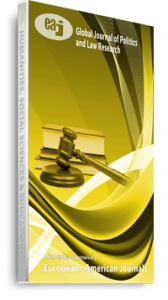The strides in information and communication technology (ICT) makes e-commerce a critical and inexorable feature of the global economy. In modern trend, significant numbers of transactions are consummated online. In Nigeria, it is no longer news that Central Bank of Nigeria (CBN) is promoting a ‘cash-less policy’ to drive development and modernation of our payment system in line with Nigeria’s version 2020 goal of being amongst the top 20 economies of the year 2020. This paper seeks to examine the tax framework to reflect the realities of modern transactions, establish a basis of taxation that arrests leakages and enables tax authorities to capture revenue that would otherwise have continued to leak. The researcher recommends the legal frame work of e-commerce taxation which has to be amended to reflect the global taxation principles of e-tax in our tax laws as a sovereign state so that investors and business carried on online should be taxed. Also that our tax policy and compliances to the regulatory authorities such as FIRS(Federal Inland Revenue Services)should be enforced on defaulting businesses, individuals and corporate entities as wells government agencies and departments to minimize tax evasion and avoidance.
Keywords: Assessment and E-Payment, Cybercrime, E-Commerce, ICT, Internet, Leakages, Legal Framework, Taxation

